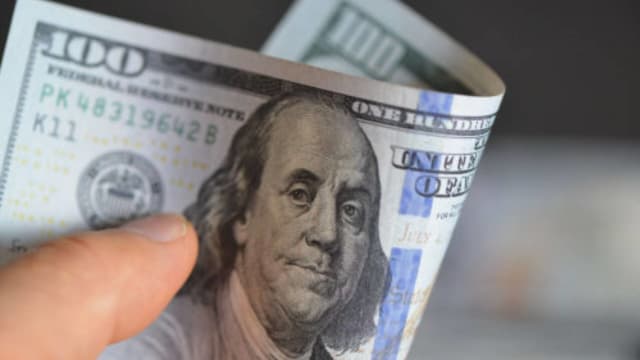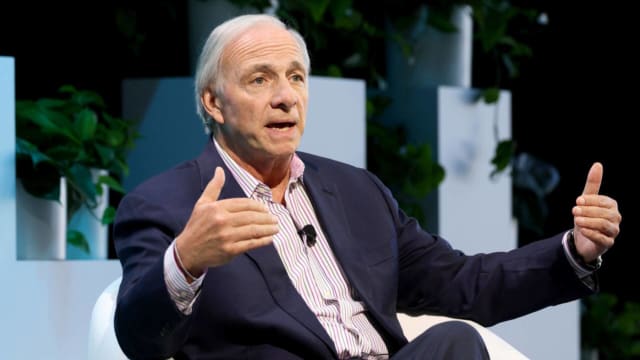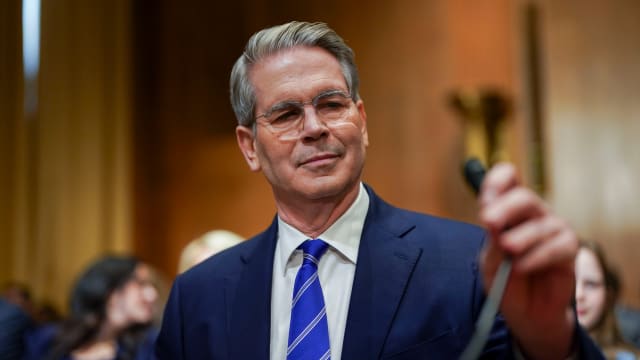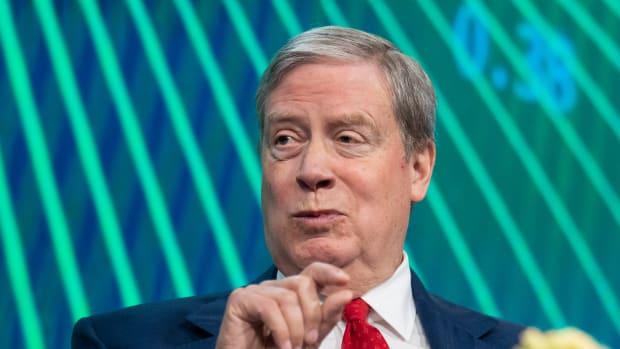Secretary Bessent has blunt message on 'Big Beautiful Bill' debt problem
The One Big Beautiful Bill, officially signed into law on July 4, makes major changes to the tax code this year.
After significant jaw-boning and contentious debate, President Donald Trump successfully won enough support in the House and Senate to usher the more than 900-page One Big Beautiful Bill Act across the finish line.
The passage sets the stage for a massive increase in the State and Local Tax (SALT) deduction, offering needed tax relief to homeowners in high-tax zip codes.
It also means a significant bump in the Social Security income tax deduction, which, while not eliminating Social Security income taxes, will mean far fewer people have to pay Federal taxes in retirement.
The Social Security bonus deduction and SALT tax changes will win cheers from taxpayers, but not everyone is happy about this bill.
Tax cuts mean far less revenue for the government, which is problematic because of our already concerning and growing debt pile.
The risk that the One Big Beautiful Bill Act balloons the deficit has captured the attention of Treasury Secretary Scott Bessent.
Bessent, a long-time stock market veteran trained under legendary hedge fund manager Stanley Druckenmiller, has a long history of experience navigating good and bad economies.
His take on concerns surrounding the One Big Beautiful Bill Act will likely raise a few eyebrows.
What's in the One Big Beautiful Bill Act?
The One Big Beautiful Bill Act's main feature is that it continues the tax cuts provided under the Tax Cuts and Jobs Act (TJCA), which was passed in 2017 during President Trump's first term in office.
Removing tax uncertainty by extending those cuts was important, but not the only promise made by President Trump on the campaign trail.
The Act includes a big tax break for those 65 years of age and up. It also provides more financial wiggle room to families living in high-tax neighborhoods by significantly increasing the State and Local Tax (SALT) Deduction to $40,000 from $10,000 under the TJCA.
The Social Security bonus deduction is one of the most closely watched and popular changes.
While President Trump couldn't remove Federal income taxes on Social Security entirely, the Act does increase the deduction for Americans over 65 to $6,000 from $2,000 previously.
To qualify for the bonus deduction, you don't even need to be collecting Social Security. However, Robert Powell points out one downside: If you collect Social Security and are not 65 yet, you're out of luck.
Overall, roughly 88% of Social Security beneficiaries will pay no tax on their benefits, up from 64% previously, according to Kelly Phillips Erb, widely known as the “Taxgirl.”
The One Big Beautiful Bill Act also exempts up to $25,000 per year in tip income, makes the popular 20% qualified business income (QBI) deduction under Section 199A permanent, and doubles the estate and gift tax exemption.
To help pay for those cuts, the Act eliminates tax credits for electric vehicles, energy-efficient heating and cooling, and other green energy breaks on solar and wind power.
It also cuts Medicaid by expanding work requirements and shifts the cost of SNAP benefits to states with an error rate above 6% (42 of 50 states miss this threshold).
The CBO estimates that changes to Medicaid will result in 11.8 million people losing health insurance through 2034.
Still, even with those controversial cost cuts, the One Big Beautiful Bill Act is arguably pricey and expected to swell the already sky-high deficit.
The Congressional Budget Office estimates the bill will boost deficits by $2.8 trillion through 2034.
"The debt, which is now about 6x of the money taken in, 100 percent of GDP, and about $230,000 per American family, will rise over 10 years to about 7.5x the money taken in, 130 percent of GDP, and $425,000 per family," noted veteran fund manager Ray Dalio.
"That will increase interest and principal payments on the debt from about $10 trillion ($1 trillion in interest, $9 trillion in principal) to about $18 trillion (of which $2 trillion is interest payments)."
Secretary Bessent delivers blunt words on 'One Big Beautiful Bill Act'
Scott Bessent is the 79th United States Secretary of the Treasury. Since being sworn in, he's emerged as a key voice of reason regarding economic matters, including tariffs and trade deals.
Given his role and long history tracking economies and markets, it's unsurprising that he commented on the debt worries caused by the Act.
His TL;DR takeaway is that the bill promotes U.S. growth, and that revenue associated with that growth will far outpace any increased spending caused by the bill.
"The historic tax relief President Trump just signed into law will stimulate unprecedented growth and make America affordable again," said Bessent in a statement on July 4.
Bessent went into more detail in several interviews and posts promoting the bill's passage over the weekend. Broadly, he claims that tax relief will encourage hiring, investing, and wage growth, similar to the passage of the 2017 TJCA.
"The CBO is wrong," wrote Bessent bluntly on X.
"Even with full expensing for manufacturing equipment and historic tax relief, the CBO still projects only 1.8% growth. If you turn up the growth projections to 2.8%, which was achieved during President Trump’s first term, then the debt disappears... We are growing GDP faster than debt, and that trend will continue through the remainder of the President’s term."
Bessent is highly confident that growth will materialize, at least in the short term.
"Are we growing the GDP faster than we're growing the debt?... I am sure [it] will happen over the remainder of the President's term," said Bessent on CNBC.





















